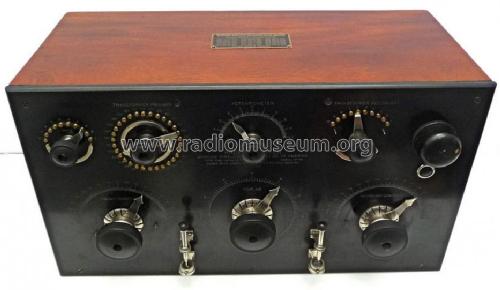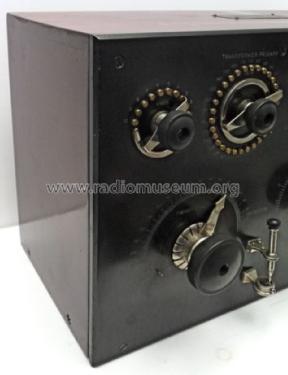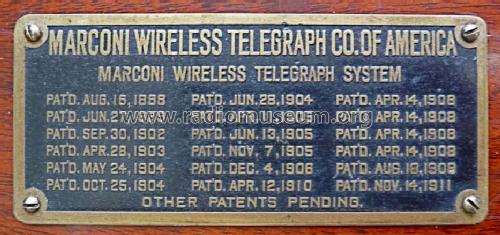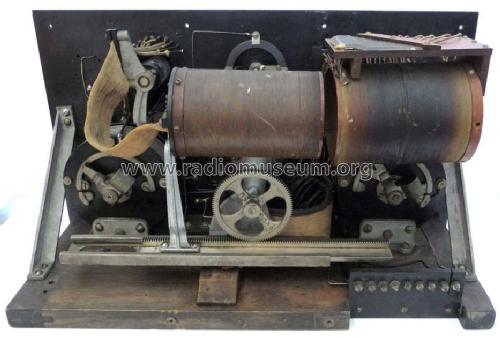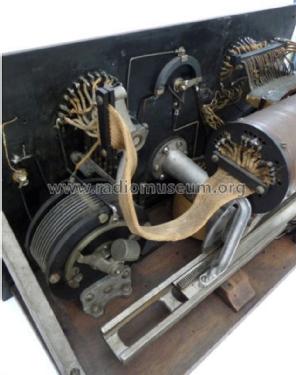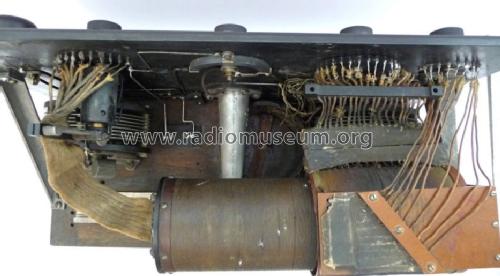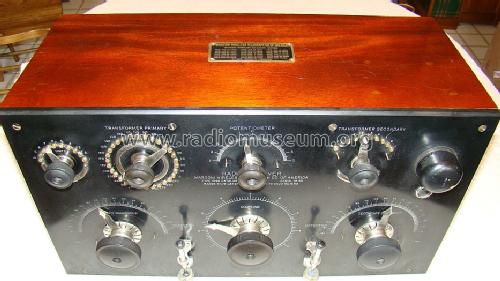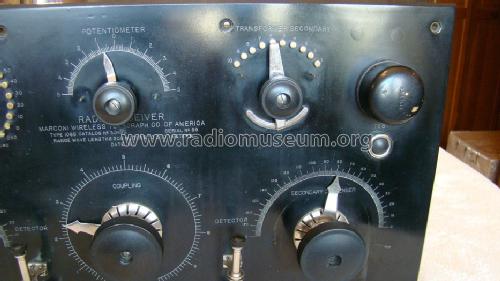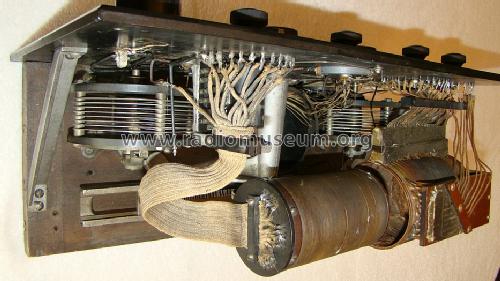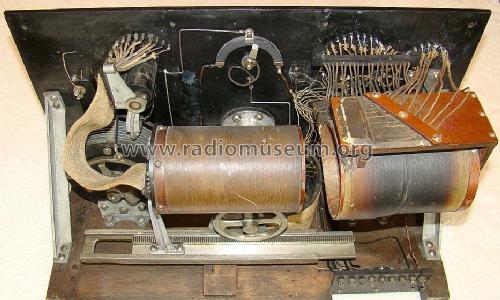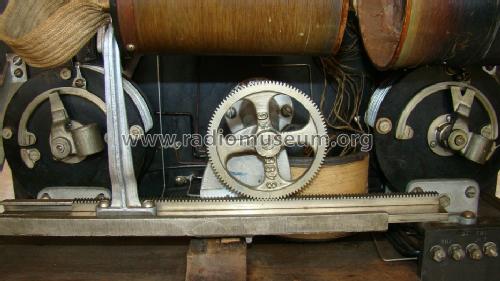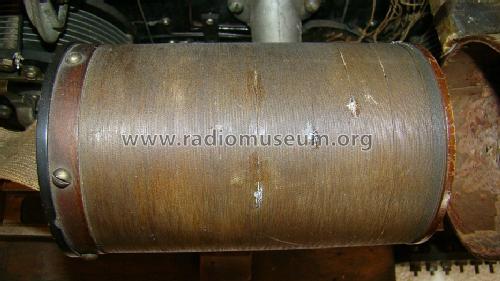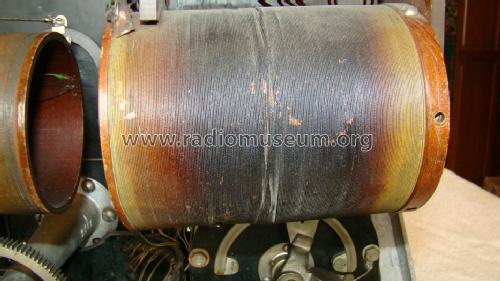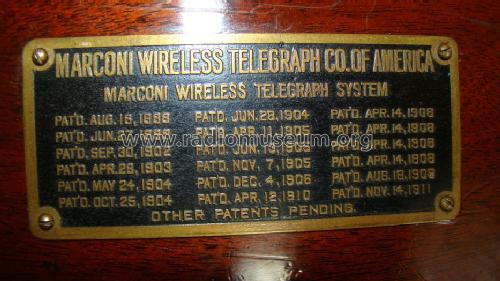Radio Receiver 106B
Marconi Wireless Telegraph Co. of America
- Land
- USA
- Hersteller / Marke
- Marconi Wireless Telegraph Co. of America
- Jahr
- 1919
- Kategorie
- Detektorempfänger (Kristall oder Diode, ohne Röhre/Transistoren)
- Radiomuseum.org ID
- 199181
-
- anderer Name: American Marconi || Marconi, American
- Marke: Marconiphone
- Hauptprinzip
- Detektion ohne aktive Elemente, solid state
- Wellenbereiche
- Langwelle, Mittelwelle (LW+MW).
- Betriebsart / Volt
- Keine Stromversorgung
- Lautsprecher
- - Für Kopfhörer oder NF-Verstärker
- Material
- Gerät mit Holzgehäuse
- von Radiomuseum.org
- Modell: Radio Receiver 106B - Marconi Wireless Telegraph Co.
- Form
- Tischgerät, Truhenform, meist mit Deckel (NICHT Schrägpult).
- Abmessungen (BHT)
- 21 x 12 x 9.5 inch / 533 x 305 x 241 mm
- Bemerkung
- Marconi Wireless 106B Radio Receiver In 1918 American Marconi introduced the 106B as a companion receiver for the 1/2 KW Quenched Gap Transmitter. It covered 200-3500 meters and was used primarily for marine applications such as yachts and small ships. The 106B had a hardwood cabinet with straight sides that differed significantly from the earlier 106 cabinet with rounded corners and protruding baseboard. The 106B is easily distinguished from the 106 with the addition of a second crystal detector to the front panel. The binding posts were also moved to the rear of the unit. The 106B is a later model of the 106; there were also 106C and 106Ds.
- Literatur/Schema (1)
- Radiola, the golden Age of RCA (page 53-54)
- Autor
- Modellseite von Alan Larsen angelegt. Siehe bei "Änderungsvorschlag" für weitere Mitarbeit.
- Weitere Modelle
-
Hier finden Sie 33 Modelle, davon 33 mit Bildern und 3 mit Schaltbildern.
Alle gelisteten Radios usw. von Marconi Wireless Telegraph Co. of America



